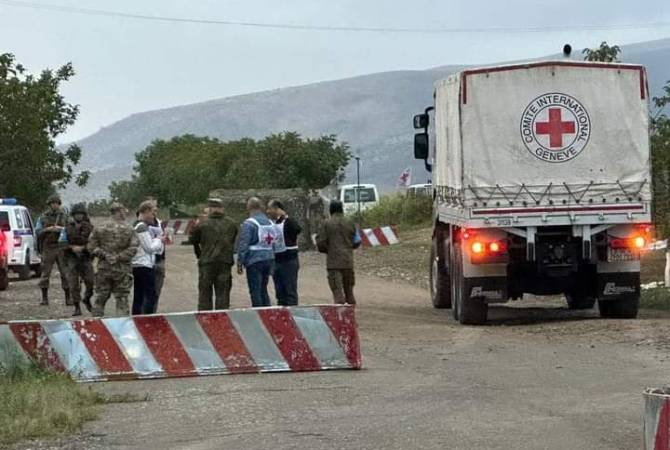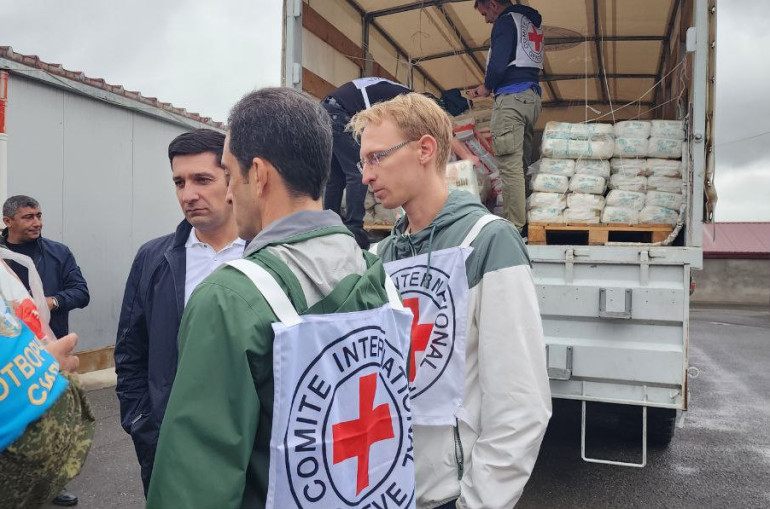
10:04, 18 September 2023
YEREVAN, SEPTEMBER 18, ARMENPRESS. The International Committee of the Red Cross (ICRC) on Monday is bringing shipments of wheat flour and essential medical items to people in need in Nagorno-Karabakh via the Lachin Corridor and the Aghdam road.
The shipments were made possible “as a result of persistent diplomatic efforts to find a humanitarian consensus between the decision-makers,” the ICRC said in a statement.

“We are extremely relieved that many people reliant on humanitarian aid will finally receive much needed support in the coming days,” said Ariane Bauer, ICRC’s regional director for Europe and Central Asia. “Health structures are lacking medical supplies. People are queuing hours for bread. They urgently need sustained relief through regular humanitarian shipments. This consensus has allowed our teams to resume this life-saving work.”
The ICRC said it has been in talks over the last weeks with decision-makers about options to get aid into the area via different routes, including both the Lachin Corridor and Aghdam road. Monday’s operation included two trucks which simultaneously delivered goods via both the Lachin Corridor and Aghdam road.
“I hope that this consensus allows for our strictly humanitarian convoys to resume not just today but in the weeks to come so that we can regularly get aid to those who need it. Our aim is to reach those most in need of assistance in line with our fundamental principles of neutrality, impartiality, and independence,” said Ariane Bauer, ICRC’s regional director for Europe and Central Asia.



